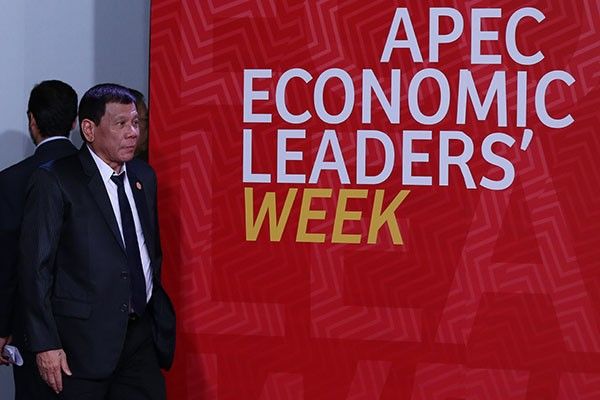Philippines urged to conclude negotiations on trade agreements

MANILA, Philippines — The Philippines is being urged to take part in the Trans-Pacific Partnership and to reach out to the Pacific Alliance in order to take advantage of opportunities offered by trade blocs.
In a memorandum to Trade Secretary Ramon Lopez, the Asia Pacific Economic Cooperation (APEC) Business Advisory Council (ABAC) Philippines said the different trade agreements would open opportunities and benefits for the country.
ABAC also noted the need to conclude the Regional Comprehensive Economic Partnership (RCEP), a 16-economy trade pact between the Association of Southeast Asian Nations states and trade partners Australia, China, India, Japan, Republic of Korea and New Zealand.
While negotiations for the RCEP commenced six years ago, member parties have yet to resolve contentious issues which include goods under each economy’s sensitive lists and movement of people.
When negotiations are concluded and an agreement is reached, RCEP is poised to become the world’s largest trading bloc with participating countries accounting for almost half of the world’s population, almost 30 percent of global gross domestic product (GDP) and over a quarter of the world’s exports.
During the 5th Intersessional RCEP Ministers meeting in Japan earlier this month, Lopez said the Philippine government called on other participating countries to conclude negotiations for a mutually beneficial trade agreement.
“RCEP is seen to benefit the local construction sector, as well as transport and machinery equipment, and services sectors, while notable improvements will be marked in agriculture and manufacturing,” ABAC Philippines said.
ABAC Philippines said the country should also seriously consider joining the TPP or the Comprehensive and Progressive Agreement on Trans-Pacific Partnership (CPTPP) as trade ministers of member economies have said doors are open to interested parties wishing to join the economic bloc.
The CPTPP signed in March this year by countries such as Australia, Brunei Darussalam, Canada, Chile, Japan, Malaysia, Mexico, New Zealand, Peru, Singapore, and Vietnam initially included the US prior to its decision to withdraw last year.
In addition, ABAC Philippines wants the Philippine government to reach out to the Pacific Alliance, which is composed of Chile, Colombia, Mexico, and Peru.
The alliance has admitted Australia, Canada, New Zealand, and Singapore as “associate members”, while Southeast Asian countries such as Indonesia and Thailand have signed up as “observer” parties to the deal.
ABAC Philippines sees big room for growth in Philippine and Latin American economic relations through the Pacific Alliance.
While the bloc accounts for 37 percent of the Latin American population, 35 percent of its GDP, and about 50 percent of its exports and imports, trade with Pacific Alliance members has not been significant, accounting for less than one percent share in Philippine exports and imports.
“Establishing economic ties with our friends from Pacific Alliance may serve as the Philippines’ entry point to the entire Latin American market,” said Manuel Teehankee, outgoing APEC senior official member for the Philippines undersecretary.
The RCEP, CPTPP and the Pacific Alliance are seen as pathways to the Free Trade Area of the Asia-Pacific, the envisioned integrated bloc of all APEC economies.
“We support these trade initiatives which will lead to a closer economic relationship with our Asia-Pacific peers. We enjoin the government to define the Philippine position in these regional agreements, and to work with the private sector in honing our country’s competitive advantage,” ABAC Philippines chair Tomas Alcantara said.
ABAC provides advice on specific business sector priorities, responds when the various APEC fora request information about business-related issues or to provide the business perspective on specific areas of cooperation, and presents recommendations to APEC Leaders in an annual dialogue.
- Latest
- Trending



























